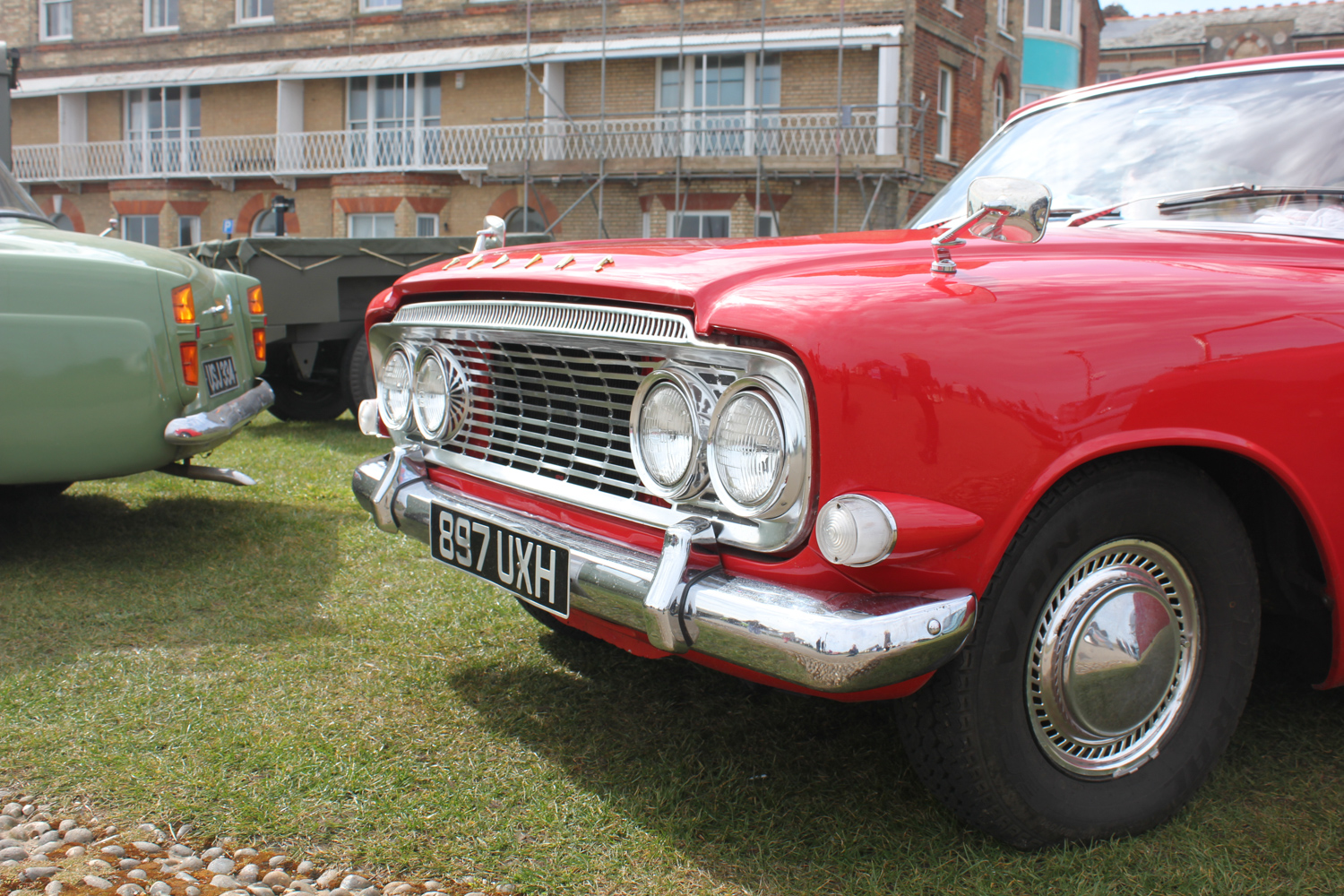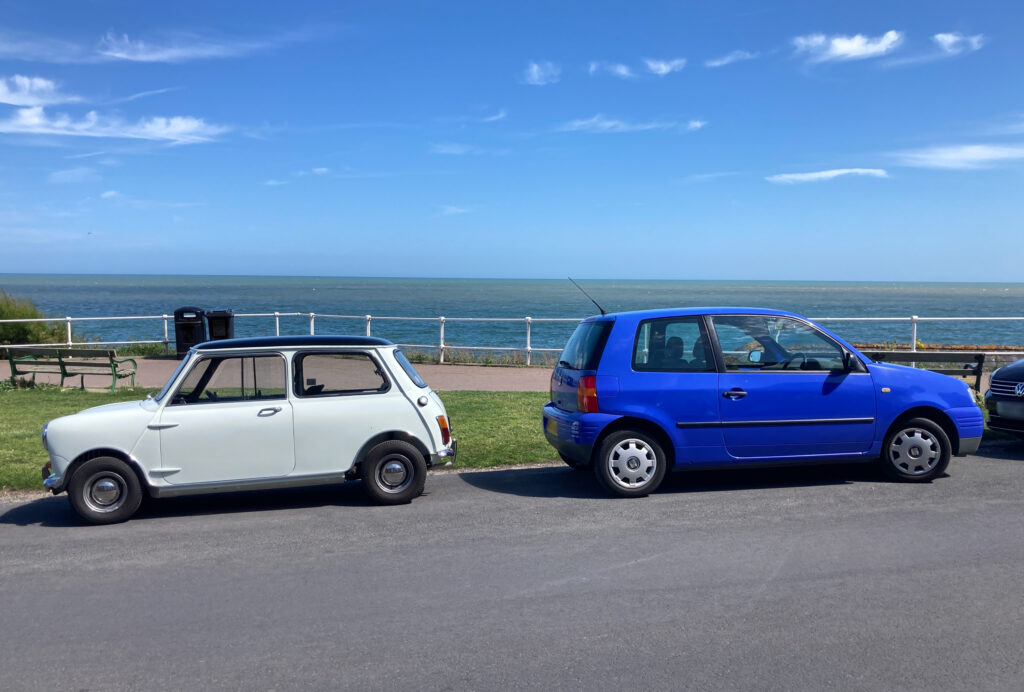
Right now there is a debate raging in the car community concerning the sustainability of the vehicles we drive. If you’re considering ditching your old classic in favour of a new electric vehicle, here are both sides of the argument for you to help you decide…
On one side we have the advocates of the electric vehicle (EV), who state that this type of transportation is cleaner and kinder to the environment. On the other, we have some environmentalists that suggest keeping our older cars running is much better for the environment than making brand new electric ones…
Of course, the issue is a complex one and needs to be considered in detail before any conclusions can be reached. The good news is you can find a comprehensive outline of all the pros and the cons of both sides of the argument below. Just read on to find out what they are.
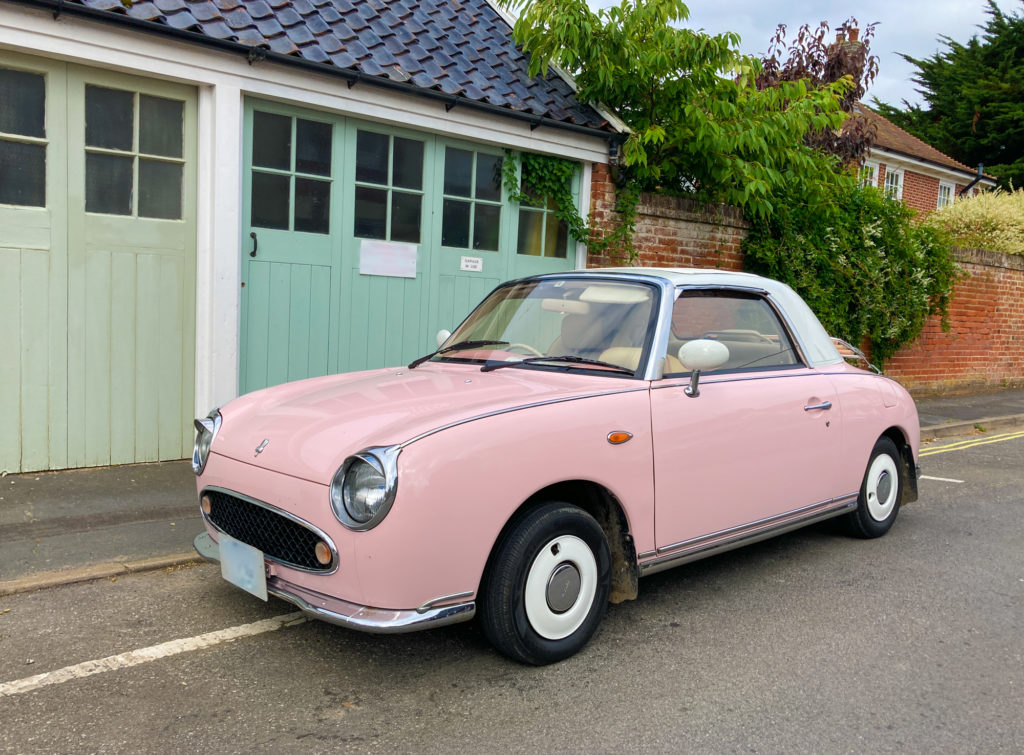
Keeping your old car running pros
No more resources are used in creating them
One of the biggest advantages of keeping your old vehicle running is that the resources needed to make it have already been consumed. This is important because it means that finite resources such as lithium cobalt oxide cathode and a graphite anode (as used in electric car production) will not need to be mined. It also means that no energy will be used in the production and logistics of getting the car to you which it can be argued is also more sustainable to the environment.
Classic cars can be much better for the environment
Another argument in favour of keeping older cars on the road, and in particular classic ones, is that they have a much smaller carbon footprint than other vehicles. This is because they use a great deal less fuel than a typical car of today.
Additionally, the ideas of the environmental movement – repair, reuse, and recycle are shared by the classic car movement which means they are well aligned in their methods.
However, if you are worried about people judging you for driving a classic or older vehicle you can use private number plates to make it much less easy to date its year of production. Private number plates are also popular with classic car owners as they provide them with the opportunity to further customise and personalise their vehicles.
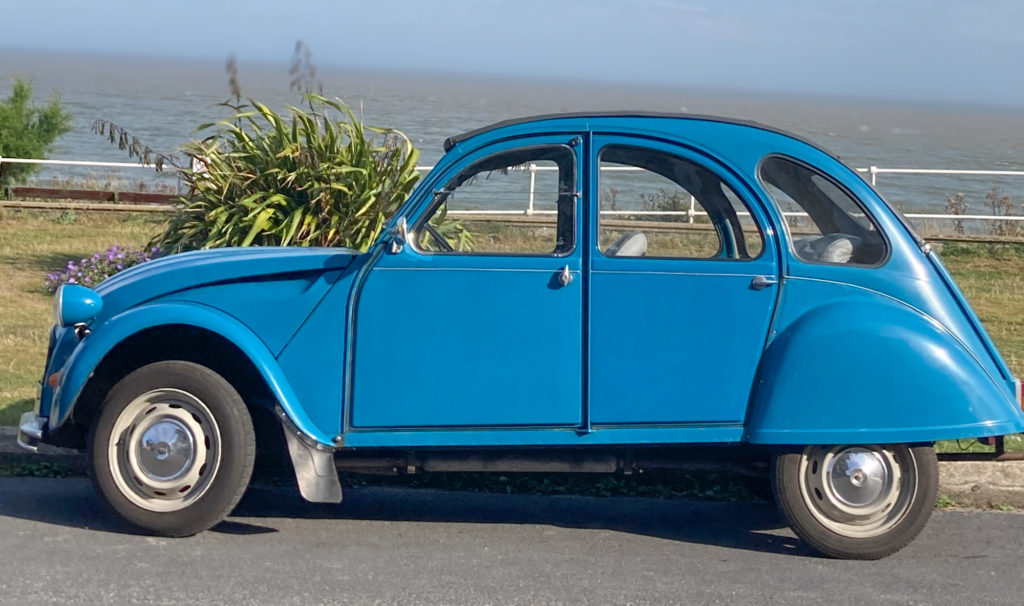
Keeping your old car running cons
Using petrol or diesel derived from fossil fuels is bad for the environment
The most convincing argument against running an old car rather than investing in a new electric vehicle is that the former runs on fossil fuels. That means unlike electric cars there is no option to source the fuel it runs on cleanly or sustainably. Instead, all the fuel it burns is drawn from finite sources and releases CO2 into the atmosphere as it burns, contributing to the greenhouse effect and the heating of the Earth.
Older cars tend to be less reliable and more expensive to maintain and repair
Additionally, on a practical note, older cars tend to be a great deal less reliable than their new eclectic counterparts. After all, electric cars are made not only to be cleaner in terms of fuel consumption but are also filled with the latest, more reliable technology. Indeed, while the idea of owning an old fossil fuel car may adhere to the reuse, and recycle attitude of the environmental movement, we may find that it’s a much more expensive, and inconvenient option as well.

New electric car pros
No exhaust
Perhaps, the most critical benefit of the electric car is that it has no combustion engine, no exhaust, and therefore no emissions. That means it releases no CO2 as it runs, which means a reduction in the contribution to global warming.
Electric car tech has come a long way (literally)
One of the biggest concerns buyers had when considering investing in an electric car is that they were only capable of travelling short distances before they needed recharging. The problem is that if you are nowhere near a charger when this happens you could be left stranded, unable to continue your journey and in some cases unsafe.
However, as is the case with so much technology these days, the tech involved in electric cars has been developing quickly, including creating better batteries that hold a much greater charge. This now means that it’s possible to travel much further distances on a single charge, reducing the risk of the above problems.
Faster than petrol cars
Many assumed EVs were to perform less well than their fossil field counterparts, but this is not the case. Indeed, for those looking for speed and acceleration, EVs are the clear choice with some offering 0 – 60 mph in as little as 3 seconds! Now that’s quick!
Less maintenance
Electric car engines have far fewer parts than ones that run on fossil fuels, and that means they also require much less maintenance. Also because EVs use a process known as regenerative braking when slowing down their mechanical brakes are used far less and so will require a great deal less maintenance and repair and so be cheaper to run overall.

New electric car cons
No Tow
The problem with EVs and towing is a big one for anybody with a caravan or trailer. This is because towing can reduce the range of your EV battery by around two-thirds. That means you will have to stop and charge up much more frequently when towing which can be a real stress for some people. Especially as many of the EV charging spots are not large enough to accommodate an EV and the trailer it’s towing, so you may end up having to decouple and recouple every time you need to charge!
Replacement batteries are expensive
EVs have batteries instead of engines. But the life of these batteries at 10-12 years is relatively short compared to a combustion engine. Unfortunately, the cost of getting a replacement battery is huge and can run into the tens of thousands, which is untenable for many of us.
However, the cost of new batteries is set to come down as more hit the market, and EV owners will have the option to buy reconditioned ones as well. Still, comparatively, it’s like buying a whole new fossil fuel engine every 10 years which makes the cost prohibitive for many.
Charging stresses
Last of all, it’s important to remember that charging an EV can be something of a hassle if you don’t have a charging station on your property. While it’s true that many places such as shopping centres and supermarket car parks have charging stations, the problem is that you cannot rely on them being free when you need them, which leaves your vehicle useless until they are.
Some people have also reported concerns about the safety of using charging stations in remote locations such as motorway service stations at night as it leaves them vulnerable for an extended period.
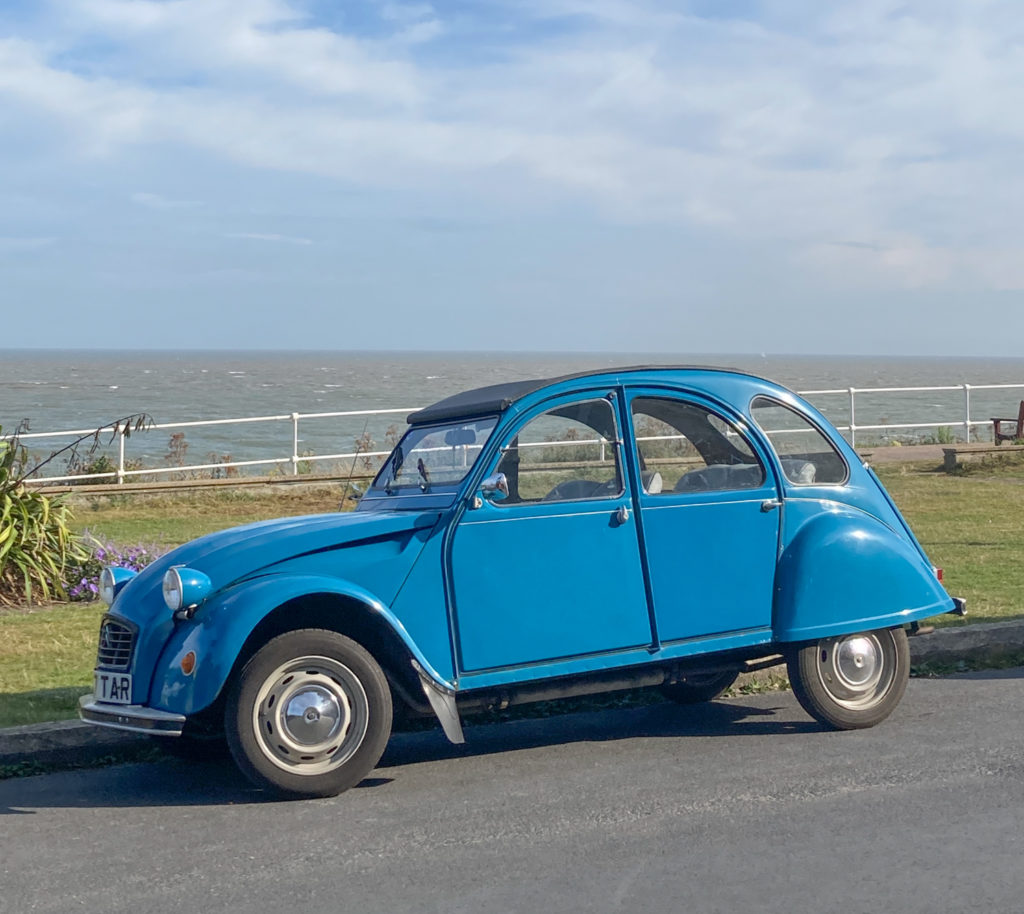
Final Thoughts: Which Is More Eco-Friendly?
While there are convincing arguments for both keeping and running your old vehicle and investing in a new electric car, it is hard to say definitely which is better for the environment without a side-by-side comparison study.
However, it might be possible to conclude that when it comes to running fossil fuel cars, keeping your old one is better than buying a new one because materials do not need to be consumed in creating it.
Overall though, the EV seems to hold the advantage because while they do involve the use of some unsustainable process, they also present the possibility of being run on clean and renewable energy, which has to be better for the planet in the long term.
Let me know what you think in the comments and I’d love to hear your experiences of using an electric vehicle – please share below. 🙂
Pin it for later
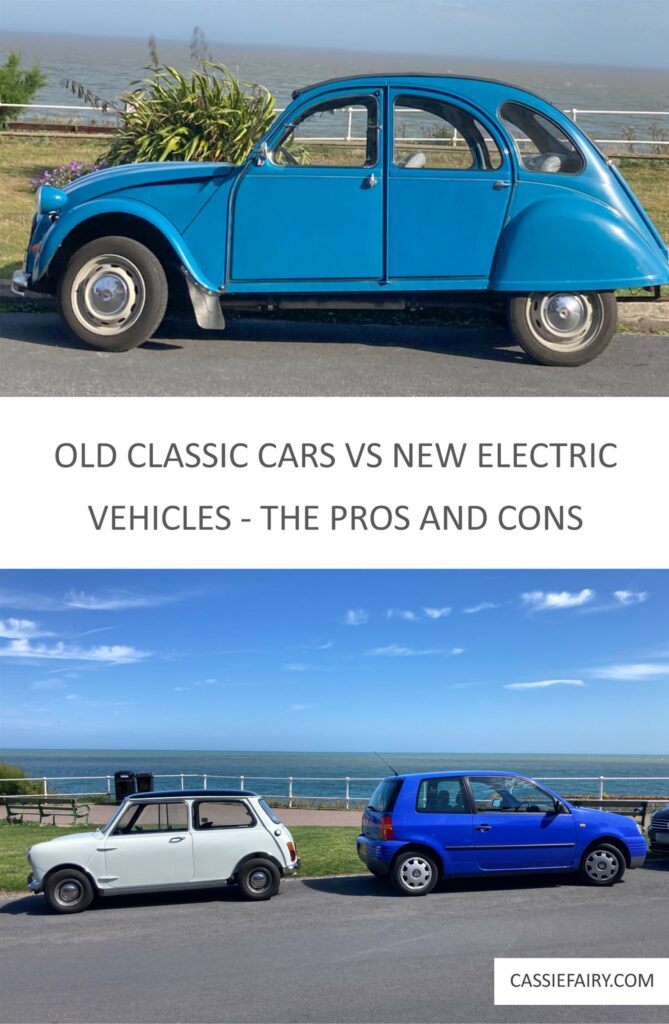
This blog post is an advertisement feature that has been written in collaboration with a sponsor. The pink links in this post indicate a sponsored link 🙂



















